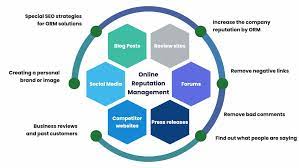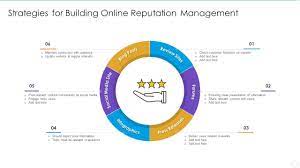Mastering Strategic Communication Consulting: Unlocking Business Success
The Power of Communication Consulting
Communication consulting plays a crucial role in helping businesses effectively convey their messages, build relationships, and achieve their goals. In today’s fast-paced and competitive business environment, the ability to communicate clearly and strategically is more important than ever.
Communication consultants are experts in developing communication strategies that align with a company’s objectives and resonate with its target audience. They offer valuable insights, expertise, and guidance to help businesses navigate the complex world of communication.
One of the key benefits of communication consulting is its ability to enhance a company’s reputation and credibility. By crafting compelling messages and engaging content, communication consultants can help businesses build trust with their stakeholders and establish themselves as industry leaders.
Furthermore, communication consulting can help businesses effectively manage crisis situations and navigate challenging issues. Communication consultants are trained to handle sensitive matters with tact and professionalism, ensuring that companies maintain their reputation even in times of adversity.
Another important aspect of communication consulting is its role in improving internal communication within organisations. By fostering open dialogue, promoting transparency, and enhancing employee engagement, communication consultants can help create a positive work culture that drives productivity and innovation.
In conclusion, communication consulting is a valuable asset for any business looking to enhance its communication efforts and achieve success in today’s competitive landscape. By partnering with experienced communication consultants, companies can unlock the full potential of their messaging strategies and build strong relationships with their audiences.
Five Essential Tips for Effective Communication Consulting
- 1. Listen actively to understand the client’s needs and goals.
- 2. Clearly define communication objectives and strategies before implementing any solutions.
- 3. Tailor your communication approach to suit the client’s industry, audience, and culture.
- 4. Provide regular updates and reports to track progress and ensure transparency.
- 5. Continuously seek feedback from the client to improve communication effectiveness.
1. Listen actively to understand the client’s needs and goals.
Active listening is a fundamental tip in communication consulting, essential for truly grasping the client’s needs and objectives. By attentively listening to the client’s concerns, goals, and expectations, communication consultants can gain valuable insights that form the foundation of tailored communication strategies. Active listening fosters a deeper understanding of the client’s perspective, enabling consultants to provide solutions that align precisely with their requirements. This practice not only strengthens the consultant-client relationship but also ensures that the communication initiatives are effective and impactful in meeting the client’s desired outcomes.
2. Clearly define communication objectives and strategies before implementing any solutions.
In the realm of communication consulting, it is essential to adhere to the tip of clearly defining communication objectives and strategies before implementing any solutions. By establishing clear and measurable goals, as well as outlining the strategies to achieve them, businesses can ensure that their communication efforts are focused, purposeful, and aligned with their overall objectives. This proactive approach not only helps in crafting targeted messages but also enables a more effective implementation of communication solutions that yield desired outcomes.
3. Tailor your communication approach to suit the client’s industry, audience, and culture.
When engaging in communication consulting, it is essential to tailor your approach to align with the client’s industry, audience, and culture. Understanding the nuances of these factors allows for more effective communication strategies that resonate with the intended recipients. By customising the messaging to suit the specific context in which it will be received, communication consultants can ensure that their efforts are well-received and impactful. This tailored approach demonstrates a keen awareness of the client’s unique needs and helps build stronger connections with their target audience.
4. Provide regular updates and reports to track progress and ensure transparency.
In communication consulting, it is essential to provide regular updates and reports to track progress and ensure transparency. By keeping stakeholders informed of the ongoing communication strategies, milestones achieved, and results obtained, businesses can maintain transparency and build trust. Regular updates also allow for adjustments to be made in real-time, ensuring that the communication efforts stay aligned with the overall objectives. This practice not only fosters accountability but also demonstrates a commitment to open communication and continuous improvement in achieving desired outcomes.
5. Continuously seek feedback from the client to improve communication effectiveness.
In the realm of communication consulting, a crucial tip for enhancing effectiveness is to continuously seek feedback from the client. By actively engaging with the client and soliciting their input, communication consultants can gain valuable insights into what is working well and areas that may require improvement. This feedback loop not only fosters a collaborative relationship but also allows consultants to tailor their strategies and messages to better meet the client’s needs and objectives. Embracing feedback as a tool for growth and refinement can lead to more impactful communication outcomes and stronger partnerships in the long run.












